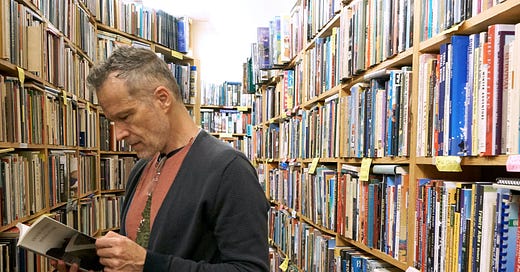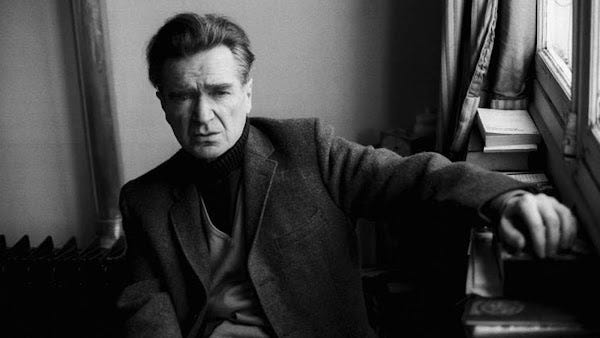AS SOON AS I HEAR ONE of the tracks from Steely Dan’s Aja I smell weed.
But I’m recalling a focused, almost academic stoner-ism from back in the late 70s. This was one of those watershed cultural moments—right before the music business became the equivalent of giant shoulder pads in women’s clothing and Smokey and the Bandit playing 24/7 at the Cinerama.
Meaning, Steely Dan records were the last exhalation of pop-rock-jazz that was both un-self-consciously exceptional and fun. Albums that offered you the same thrill as reading prose from say, Nabokov or Woolf.
A good writer will tell you that your first couple of drafts involve a process of reaching perfection. The best you can bring. But the final draft involves dismantling the perfection—to make the syntax read like it just fell out of your brain and onto the page. All the signs of perfection (or, god forbid, showiness) are smudged out. The prose is returned to earth but in an off-the-cuff but still sort of confounding way.
Steely Dan made their records in the same way. Yes, sonically they call up the tired Swiss watch metaphor, but they transcend their fastidiousness and pass into a strange that is beyond perfection. And so listening while high you’d listen for all of the subtle symphonious shifts while also thinking, “But wait, this is just pop music.” The critic Don Breithaupt wrote: “Steely Dan records contain harmonic shifts, the way other records contain melodic, rhythmic and lyrical motifs.”
The other night I got into a peculiar mood and decided to deep-dive Aja’s Peg—a hit single that just skirted the Top 10 after its release in late ‘77.
But instead of focusing on the legendary Polynesian-inspired guitar solo by Jay Gradon (legendary because Becker and Fagan auditioned eight different maven guitarists before settling on Gradon—who played regularly for Barbra Streisand and The Carpenters!) I went behind the curtain and fixated on the multi-tracked background vocals Becker and Fagan saddled former alumni Michael McDonald with.
Peg is so tightly arranged, like a Byzantine mosaic, it’s easy to miss (or take for granted) the bizarre vocal achievement McDonald was asked to deliver. It’s like he was instructed, “OK, so first open up your throat so you sound like a synthesized horn. And then sing ‘round back on top of the phrase you just delivered, but in a different pitch.”
There’s barely any room between intervals for McDonald to catch his breath and bring in the next line while harmonizing with himself. Listen to how he shoves out the words ‘foreign movie’ a half-beat before Fagan even sings the lyric. McDonald’s performance is like space-age scatting.
Better yet, listen to McDonald himself explain his process for you. And then listen to Peg again after you’ve smoked a bowl.
“I am a mystic and I believe in nothing.” —Gustave Flaubert
ATHEISTS ARE USUALLY AWFUL. Dreary and dry—so certain of their uncertainty. Doubly so if they’re of the hard-headed soapboxing sort, like Richard Dawkins. Triply so if they have a prissy way of speaking as Dawkins does.
But recently my friend Tim posted this commentary from Dawkins and it gave me pause. Dawkins wrote this shortly after the death of his daughter:
“We are going to die, and that makes us the lucky ones. Most people are never going to die because they are never going to be born. The potential people who could have been here in my place but who will in fact never see the light of day outnumber the sand grains of Arabia. Certainly, those unborn ghosts include greater poets than Keats, scientists greater than Newton. We know this because the set of possible people allowed by our DNA so massively exceeds the set of actual people. In the teeth of these stupefying odds, it is you and I, in our ordinariness, that are here. We privileged few, who won the lottery of birth against all odds, how dare we whine at our inevitable return to that prior state from which the vast majority have never stirred?”
After reading the above this morning I thought: Atheists can be the most passionate mystics because they place nothing between themselves and the ultimate unknowability. And that’s pretty goddamned raw. And speaking of which:
ZEN AND PHILOSOPHY, well Western philosophy—don’t mix well. Philosophy is about compounding abstractions until your butthole inverts upon itself. Whereas Zen does away with distinctions between buttholes and mouths entirely.
So when I discovered the writings of Emil Cioran recently I was floored by his non-stop stream of self-annihilating aphorisms that mimic in some ways the Zen ways that Nietzche would occasionally rub up against. Although Cioran trots merrily beyond Nietzche’s efforts to stay true to the craft.
Cioran is considered a nihilist (with a pessimistic chaser). But really he was an absurdist who believed that pulling the Band-Aid off in one quick rip was the best way to confront the ultimate meaninglessness of life.
People being people, they must find a way to categorize other people because, well, life is safer that way. But Cioran always managed to wiggle free, and he’d write something like “I plunged into the Absolute a fool; I emerged a troglodyte.” The first time I read that I laughed so hard—not even certain of what I read until ten minutes later.
Right now I’m reading his small volume All Gall is Divided. And this one pass might actually be enough to last a lifetime. So heavy did death and suicide color his work that your survival instinct starts to pull you away from your mind’s dalliance.
Regardless, here are some of his most beguiling pulls from his oeuvre:
“The fact that life has no meaning is a reason to live—moreover, the only one.”
“We have convictions only if we have studied nothing thoroughly.”
“We are born to Exist, not to know, to be, not to assert ourselves.”
And my favorite:
“There is no other world. Nor even this one. What, then, is there? The inner smile provoked in us by the patent nonexistence of both.”
Love,
Opening photograph: Caleb Harper © 2021 • Collage by Trash Riot • Cioran photo: Unknown.
Twitter • Facebook • Instagram • Spotify • YouTube • Books • Consultations












Have been a Steely Dan fan since I first heard Do It Again. Before SD re-grouped Fagen had the Rock n Soul Revue with Boz Scaggs and Michael McDonald. They played at outdoor venue Blossom Music Center south of Cleveland. As they were about to sing Chain Lightning a bolt of lightning struck the amphitheater. It was a clear summer night. After a review of sound system the show went on.
I like the same thing about Peg and due to the preferences of my social circle, never got to talk about it. Thanks! Also thanks for writing about atheism. Respect.